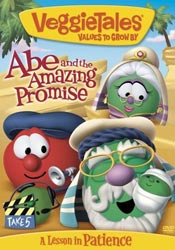Two wonders of literature passed away today and they will be missed. The first was John Updike, who succumbed to a long battle with lung cancer at 76. The second is the time in our history when authors represented the strongest voice in our culture; when what they had to say influenced the national discussion; when their insight, wit, relevance, craft and sublime touch on society’s pulse was both a work of art as well as work of leadership.
I first studied John Updike in college, having never heard of him. It wasn’t that I wasn’t well read, but I wasn’t from New York, where his work has appeared in The New Yorker since 1954 and where he also wrote frequently for the New York Review of Books.
He was most known for his “Rabbit” series, including “Rabbit, Run,” “Rabbit Redux,” “Rabbit Is Rich,” “Rabbit at Rest,” and “Rabbit Remembered.” One of the reasons he was so popular was that his primary subject was the typical small town, Protestant, middle class American. “Rabbit is Rich” and “Rabbit at Rest” were Pulitzer Prize winners.
Suburban sexuality was at the center of many of his writings, so much so that I’m surprised the likes of Joe Eszterhas or Paul Verhoeven haven’t turned more of his novels into films. Some of his dryer lines about faith, life and the intersection of the two include:
• “Men are all heart and Women are all body. I don’t know who has the brains. God maybe.”
• “Gods do not answer letters.”
• “Fame is a mask that eats into the face.”
• “America is a vast conspiracy to make you happy.”
• “An Irish temper makes you appreciate Lutherans.”
• “The great thing about the dead, they make space.”
Today, though, we live in an age where exponentially more Americans watch TV than read novels, and today’s movie stars and other celebrities are the ones our culture listens to. Many more Americans are more familiar with the movies made from Updike’s novels (“The Witches of Eastwick” was one) than his books. And also, we’re not as universal as we used to be. Our world is flat and wired, bigger, and smaller at the same time, multicultural and not as faith-centric. Updike’s writings competed with three networks. Today we have a thousand channels.
However, the best thing about literature is that it doesn’t go away. If you’d like to learn about the values of an America past and consider its relevance and insight into our world today, his writings are easy to find and his directness and humor makes them easy to read. I suspect Updike is already missed by an older generation, as is–to a large degree–his genre.
Here’s a more complete obituary from Hillel Italie of Associated Press. And here’s a great reflection on John Updike’s life and work from one of my seminary professors, Rob Johnston.
Yes, our culture now depends mostly on television, movies, pundits, nuveau celebrities and very young divas to guide our typical societal discourse. But Updike’s was a time when the deepest of thought, the most regular of comment, and the time taken to write and be read, once held a graceful and more dominant wave in our national congregation. He was a frequent and popular speaker in its pulpit.


